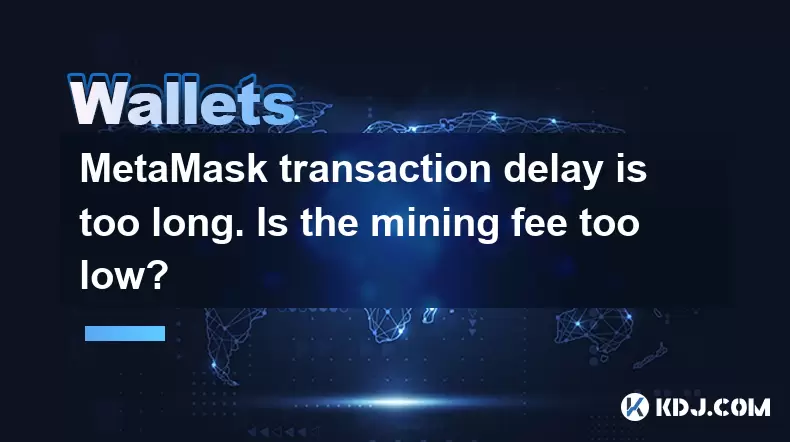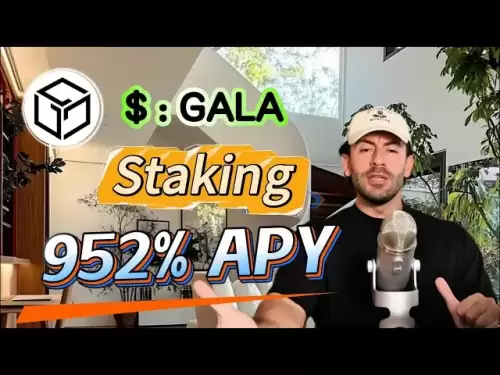-
 Bitcoin
Bitcoin $114500
-0.31% -
 Ethereum
Ethereum $3648
1.11% -
 XRP
XRP $3.033
-0.27% -
 Tether USDt
Tether USDt $0.9999
-0.01% -
 BNB
BNB $758.5
-0.32% -
 Solana
Solana $167.5
1.48% -
 USDC
USDC $0.9998
-0.02% -
 TRON
TRON $0.3331
0.74% -
 Dogecoin
Dogecoin $0.2039
0.25% -
 Cardano
Cardano $0.7419
-0.46% -
 Hyperliquid
Hyperliquid $39.21
2.66% -
 Stellar
Stellar $0.4049
-1.95% -
 Sui
Sui $3.483
-0.56% -
 Bitcoin Cash
Bitcoin Cash $570.8
2.89% -
 Chainlink
Chainlink $16.67
-0.57% -
 Hedera
Hedera $0.2470
-1.57% -
 Ethena USDe
Ethena USDe $1.001
0.00% -
 Avalanche
Avalanche $22.36
1.52% -
 Litecoin
Litecoin $123.4
4.35% -
 UNUS SED LEO
UNUS SED LEO $8.989
0.09% -
 Toncoin
Toncoin $3.324
-2.40% -
 Shiba Inu
Shiba Inu $0.00001219
-1.30% -
 Uniswap
Uniswap $9.811
2.54% -
 Polkadot
Polkadot $3.662
-0.07% -
 Monero
Monero $295.5
-3.85% -
 Dai
Dai $1.000
0.01% -
 Bitget Token
Bitget Token $4.345
0.24% -
 Cronos
Cronos $0.1380
0.95% -
 Pepe
Pepe $0.00001044
-1.14% -
 Ethena
Ethena $0.5981
-4.24%
MetaMask transaction delay is too long. Is the mining fee too low?
To avoid delays on Ethereum with MetaMask, set a competitive gas price using estimators like Etherscan or EthGasStation for faster transaction processing.
May 12, 2025 at 06:01 pm

When using MetaMask to conduct transactions on the Ethereum blockchain, one of the most common issues users encounter is a prolonged transaction delay. This delay can be frustrating, and many users wonder if the cause is a mining fee that is set too low. In this article, we will explore the relationship between transaction delays and mining fees, helping you understand the underlying mechanics and how you can optimize your transaction speed.
Understanding Ethereum Transaction Fees
Ethereum transactions require a fee to be processed by the network. This fee, known as the gas fee, is paid to miners who validate and include transactions in blocks. The gas fee consists of two components: the gas price and the gas limit. The gas price is the amount of Ether (ETH) you are willing to pay per unit of gas, while the gas limit is the maximum amount of gas you are willing to use for the transaction.
How Mining Fees Affect Transaction Speed
The speed at which your transaction is processed is largely influenced by the gas price you set. Miners prioritize transactions with higher gas prices because they earn more from processing these transactions. Therefore, if you set a low gas price, your transaction may be delayed as miners opt to process transactions with higher fees first.
Checking Your Transaction Status
To determine if your transaction delay is due to a low mining fee, you can follow these steps:
- Open MetaMask: Launch the MetaMask extension or mobile app.
- Go to Activity: Navigate to the "Activity" tab where you can see your recent transactions.
- Select the Transaction: Click on the transaction that is pending to view more details.
- Check Gas Price: Look at the gas price you set for the transaction. Compare it to the current network gas prices available on platforms like Etherscan or EthGasStation.
If the gas price you set is significantly lower than the current network average, it is likely that the delay is due to a low mining fee.
Adjusting Your Gas Price
If you find that your transaction is stuck due to a low gas price, you can try to speed it up by adjusting the gas price. Here’s how you can do it in MetaMask:
- Open MetaMask: Launch the MetaMask extension or mobile app.
- Go to Activity: Navigate to the "Activity" tab.
- Select the Transaction: Click on the pending transaction.
- Speed Up: Click on the "Speed Up" button.
- Adjust Gas Price: Increase the gas price to a level that is competitive with the current network average. You can check the current gas prices on Etherscan or EthGasStation.
- Confirm: Confirm the new gas price and submit the transaction.
By increasing the gas price, you signal to miners that your transaction is more urgent, which can help it get processed faster.
Using Gas Price Estimators
To avoid setting a gas price that is too low in the future, you can use gas price estimators. These tools provide real-time data on the current network gas prices and can help you set an appropriate fee for your transaction. Some popular gas price estimators include:
- Etherscan: Offers a gas tracker that shows the current gas prices and recommended settings.
- EthGasStation: Provides detailed gas price data and recommendations for different transaction speeds.
- MetaMask’s Gas Price Feature: MetaMask itself offers a gas price suggestion feature that you can use when setting up a transaction.
Best Practices for Setting Gas Prices
To minimize transaction delays, consider the following best practices when setting gas prices:
- Monitor Network Conditions: Keep an eye on the current network congestion and gas prices. During peak times, you may need to set a higher gas price to ensure your transaction is processed promptly.
- Use Gas Price Estimators: Utilize tools like Etherscan or EthGasStation to get real-time data on gas prices and make informed decisions.
- Balance Speed and Cost: Depending on the urgency of your transaction, you may choose to set a higher gas price for faster processing or a lower one if you can afford to wait.
Dealing with Stuck Transactions
If your transaction remains stuck even after adjusting the gas price, you may need to consider other options:
- Cancel the Transaction: If the transaction is not time-sensitive, you can try to cancel it. In MetaMask, you can do this by selecting the transaction and clicking on the "Cancel" button. You will need to set a higher gas price to ensure the cancellation is processed quickly.
- Replace the Transaction: Another option is to replace the transaction with a new one that has a higher gas price. This can be done by selecting the transaction and clicking on the "Speed Up" button, then setting a significantly higher gas price.
Conclusion
Understanding the relationship between transaction delays and mining fees is crucial for anyone using MetaMask on the Ethereum network. By setting an appropriate gas price and using gas price estimators, you can minimize delays and ensure your transactions are processed efficiently. If you encounter a stuck transaction, adjusting the gas price or canceling/replacing the transaction can help resolve the issue.
Frequently Asked Questions
Q: Can I set a gas price that is too high?
A: Yes, setting a gas price that is too high can result in overpaying for your transaction. While it will ensure your transaction is processed quickly, it may not be cost-effective. Always use gas price estimators to find a balance between speed and cost.
Q: How long should I wait before considering my transaction stuck?
A: The time it takes for a transaction to be processed can vary based on network conditions. Generally, if your transaction has not been processed within 30 minutes to an hour, it may be considered stuck, and you can take steps to speed it up or cancel it.
Q: Can I change the gas limit to speed up my transaction?
A: The gas limit is the maximum amount of gas you are willing to use for a transaction, and it does not directly affect the speed of the transaction. To speed up a transaction, you should focus on adjusting the gas price.
Q: Are there any risks associated with canceling or replacing a transaction?
A: Canceling or replacing a transaction involves setting a higher gas price, which can lead to higher costs. Additionally, if the original transaction is processed before the cancellation or replacement, you may end up paying for both transactions. Always monitor your transactions closely when taking these actions.
Disclaimer:info@kdj.com
The information provided is not trading advice. kdj.com does not assume any responsibility for any investments made based on the information provided in this article. Cryptocurrencies are highly volatile and it is highly recommended that you invest with caution after thorough research!
If you believe that the content used on this website infringes your copyright, please contact us immediately (info@kdj.com) and we will delete it promptly.
- Meme Coins Skyrocket: Is Dogecoin About to Be Dethroned?
- 2025-08-06 03:50:13
- Tether's On-Chain Surge: USDT Dominates and Drives Blockchain Fees
- 2025-08-06 02:50:13
- Bitcoin, Treasury, Country: Bolivia Follows El Salvador's Lead, While TON Strategy Co. Makes Waves
- 2025-08-06 03:50:13
- Succinct's PROVE Token & Mainnet Launch: A New Era for ZK Proofs
- 2025-08-06 02:50:13
- CEA Industries Rebrands as BNB Network Company: A New Era for BNB Treasury
- 2025-08-06 03:55:14
- Terra Classic's Market Module Revival: The v3.5.0 Upgrade and What It Means for LUNC
- 2025-08-06 02:30:12
Related knowledge

How to add TRC20 token to Trust Wallet?
Aug 04,2025 at 11:35am
Understanding TRC20 and Trust Wallet CompatibilityTrust Wallet is a widely used cryptocurrency wallet that supports multiple blockchain networks, incl...

What is a watch-only wallet in Trust Wallet?
Aug 02,2025 at 03:36am
Understanding the Concept of a Watch-Only WalletA watch-only wallet in Trust Wallet allows users to monitor a cryptocurrency address without having ac...

Why can't I connect my Trust Wallet to a DApp?
Aug 04,2025 at 12:00pm
Understanding DApp Connectivity and Trust WalletConnecting your Trust Wallet to a decentralized application (DApp) is a common process in the cryptocu...

How to fix a stuck pending transaction in Trust Wallet?
Aug 03,2025 at 06:14am
Understanding Why Transactions Get Stuck in Trust WalletWhen using Trust Wallet, users may occasionally encounter a pending transaction that appears t...

What is a multi-coin wallet in Trust Wallet?
Aug 03,2025 at 04:43am
Understanding Multi-Coin Wallets in Trust WalletA multi-coin wallet in Trust Wallet refers to a digital wallet that supports multiple cryptocurrencies...

How to switch between networks in Trust Wallet?
Aug 02,2025 at 12:36pm
Understanding Network Switching in Trust WalletSwitching between networks in Trust Wallet allows users to manage assets across different blockchains s...

How to add TRC20 token to Trust Wallet?
Aug 04,2025 at 11:35am
Understanding TRC20 and Trust Wallet CompatibilityTrust Wallet is a widely used cryptocurrency wallet that supports multiple blockchain networks, incl...

What is a watch-only wallet in Trust Wallet?
Aug 02,2025 at 03:36am
Understanding the Concept of a Watch-Only WalletA watch-only wallet in Trust Wallet allows users to monitor a cryptocurrency address without having ac...

Why can't I connect my Trust Wallet to a DApp?
Aug 04,2025 at 12:00pm
Understanding DApp Connectivity and Trust WalletConnecting your Trust Wallet to a decentralized application (DApp) is a common process in the cryptocu...

How to fix a stuck pending transaction in Trust Wallet?
Aug 03,2025 at 06:14am
Understanding Why Transactions Get Stuck in Trust WalletWhen using Trust Wallet, users may occasionally encounter a pending transaction that appears t...

What is a multi-coin wallet in Trust Wallet?
Aug 03,2025 at 04:43am
Understanding Multi-Coin Wallets in Trust WalletA multi-coin wallet in Trust Wallet refers to a digital wallet that supports multiple cryptocurrencies...

How to switch between networks in Trust Wallet?
Aug 02,2025 at 12:36pm
Understanding Network Switching in Trust WalletSwitching between networks in Trust Wallet allows users to manage assets across different blockchains s...
See all articles

























































































